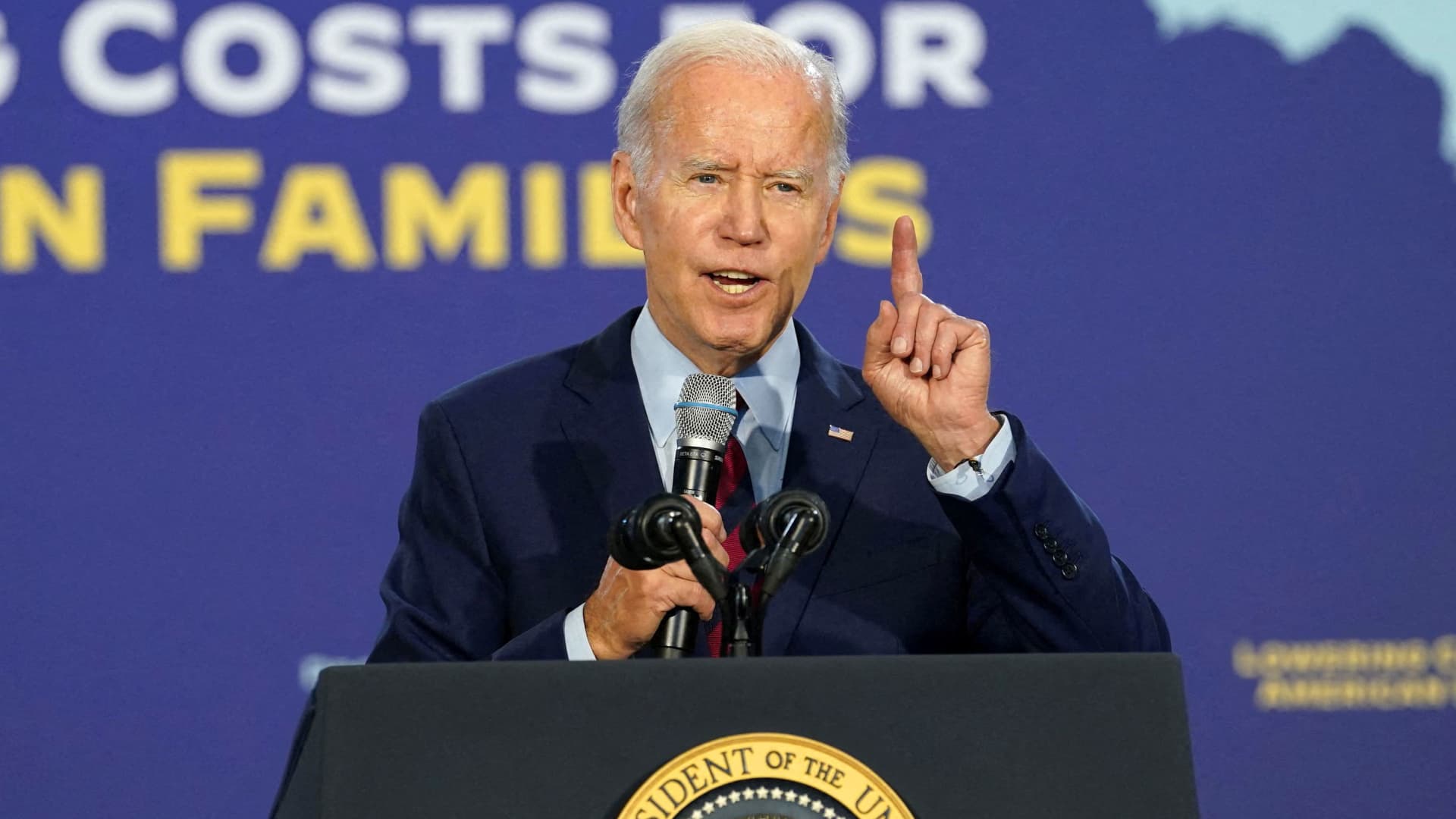The Biden administration on Thursday asserted its authority to seize the patents of certain costly medications in a new push to slash high drug prices and promote more pharmaceutical competition.
The administration unveiled a framework outlining the factors federal agencies should consider in deciding whether to use a controversial policy, known as march-in rights, to break the patents of drugs that were developed with federal funds but are not widely accessible to the public. For the first time, officials can now factor in a medication’s price — a change that could have big implications for drugmakers depending on how the government uses the powers.
“When drug companies won’t sell taxpayer-funded drugs at reasonable prices, we will be prepared to allow other companies to provide those drugs for less,” White House National Economic Advisor Lael Brainard said during a call with reporters Wednesday.
why shouldn’t we get what we pay for? not for a “reasonable price” out of some sense of “public private partnership”. if the people bear the cost of development the people should own the product outright.
Good. I’m tired of being taken advantage of by a corporate oligarchy that endlessly enriches itself at our expense.
This sounds like highway robbery. If the government wants patent rights for things they funded, they should include those terms in the grants and not do it after the fact.
Cope and seethe.
I’m neither coping nor seething. This looks like a bad policy to me and I’m describing exactly why with very little emotional investment.
Biden knows this. Pay attention to the press release.
“Ordered to consider…” Means this is a PR move.
I think it’s fine to argue robbery of some sort, but “highway robbery” is pushing it.
At worst both are wrong. The problem that led to this is that the patent was generated from tax payer money, and now the owner of the patent is exploiting those same tax payers.
taxpayers have spent tens of billions of dollars to fund hundreds of drugs
That’s actually not that much per drug - approximately 100 million, when the average drug costs over a billion to bring to market. I think the drug companies may have a point when they say
“The Administration is sending us back to a time when government research sat on a shelf, not benefitting anyone.”
On the other hand
The drugmakers charge more than $150,000 a year for Xtandi in the U.S. before insurance and other rebates, but charge a fraction of that price in other developed countries.
I don’t think it’s fair for Americans to subsidize the healthcare of equally wealthy people in other countries. There’s a possible win-win situation in which the US government helps protect the interests of American drug companies abroad in exchange for lower domestic prices.
protect the interests of American drug companies abroad
That’s a nice sentiment, but the drug companies are voluntarily selling internationally at lower prices. There’s no “protecting the interests” drone strike we can make when the big pharma is doing the rate setting itself (negotiating, true, but still a voluntary choice). The proper fix would be to mandate that any drug that had any Federal research may not be sold in the US for more than in any other part of the world and that fee may not exceed (make up a number) 10x the production cost, with distribution not allowed to exceed 50% of the cost of the retail price of the medication and delivery not to exceed 125% of commercial shipping rates.
The USA can do quite a lot via trade deals, but what you’re suggesting actually goes a lot further than what I had in mind to force other countries to pay more for drugs rather than simply reaping the benefits of American spending. Since the majority of drug profits come from the USA, drug companies would drop low-paying foreign markets rather than reduce American prices. This would simply lock out poor countries that can’t pay more than they do (maybe you would make an exception for them) but as long as the USA also enforced treaties protecting American patents, wealthy Europeans would have little choice except to pay their fair share.
(I think actually doing all that would be a major international-relations blowup, with a lot of retaliation by countries exporting to the USA. I’m also not sure it would be legal in the context of existing treaties. But it would get the job done…)
Hehehee, I like to imagine him talking to some of these companies on the phone about this problem and them acting all tough before he made this decision.
“Seize” is a really weird term to apply to something that only exists as an idea. Especially an idea that only has meaning because governments actively enforce it. It would make more sense to say Biden plans to end enforcement of the relevant patents.
I’m extremely torn about this. First of all, I’ve been saying for a long time, that the biggest problem with the American health system is the costs of everything, and not the lack of insurance. Bring the costs down, and insurance is either not needed, or should be able to be procured much more cheaply, so this move will help with that, which is a good thing.
Second, patents are in place for a reason. If you invent something, you have the right to sell it, at least for a period of time, without it being ripped off by someone else. Patents are used all the time, all around the world, and are typically protected. This is a form of theft, and I think a possible slippery slope, as it sets a precedent going forward.
Doing research that is significantly funded by the government, but then you get to keep sole control of it and abuse that position to harm subjects of the government that made ‘your’ patent even exist is a problem. I’m absolutely ok with the government threatening to take that control back. If you don’t want that threat, then entirely fund it yourself. If you don’t want the government to actually execute the threat than charge reasonable prices. You still get your control and your profits, you just can’t be a dick about it.
There’s no slippery slope at all here.
Anything but
metricuniversal healthcare.“Best we can offer is a Republican created plan to offer insurance outside if employment and an additional tax if you don’t/can’t participate in it.” ~Democrats
Best we can do is… [check notes]…
Fine you.
Fuck yeah Dark Brandon





